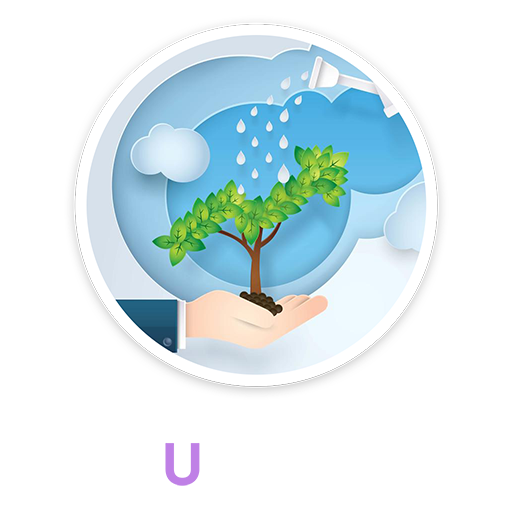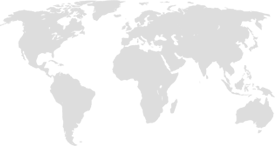BAZNAS COLLECTING AND DISTRIBUTING ZAKAT
ZAKAT IS ISLAMIC MANDATORY GIVING AND ONE OF THE FIVE PILLARS OF ISLAM
THE SOLUTION
ZAKAT : A POWERFUL FORCE FOR GOOD
Indonesia has approximately 28 million people living in poverty (11 percent of the population) and an estimated 40 percent of the population vulnerable to falling into poverty, according to the World Bank. In a report published earlier this year, Oxfam noted high inequality in Indonesia with the four richest people in Indonesia having wealth equivalent to that of the bottom 100 million people.
The maternal
mortality rate is still high with 126 maternal deaths per 100,000 live births.
One in three children under the age of five years suffer from stunting and the
quality of health care and schools is uneven.
Indonesia is
the fourth most populous country in the world, and as a country with 85 percent
Muslims, it is also the largest Muslim-majority country. A large
percentage of Indonesians regularly contribute zakat. Zakat has the
potential to contribute $32 billion (421 trillion rupiah) per year, which
is equivalent to 3.4 percent of the Indonesia’s GDP in 2016.
Zakat is Islamic mandatory giving and one of the five pillars of Islam, the others being testimony of faith (shahada), prayer (salah), fasting (saum) and pilgrimage (haj).
Zakat, which means purity in Arabic, is understood as the act of purification and growth through giving.
It is an obligation within Islam for all Muslims who are eligible to pay it to donate at least 2.5 percent of their accumulated wealth or income for the benefit of the poor, the needy and other beneficiaries classified as mustahik.
Zakat aims to provide services, benefits and improve welfare for those mustahik. The relevant Qur’anic verse states:
“Alms are for the poor and the needy, and those employed to administer the (funds); for those whose hearts have been (recently) reconciled (To Truth); for those in bondage and in debt; in the cause of God; and for the wayfarer” (Qur’an verse Surrah At Taubah verse 60)
NATIONAL AMIL ZAKAT AGENCY (BAZNAS)
BAZNAS was established in 2011. IT is an official body established by the government based on Presidential Decree No. 8 of 2001 which has the duties and functions of collecting and distributing zakat, infaq, and alms (ZIS).
BAZNAS has various distribution and utilization programs :
· BAZNAS for poverty alleviation in Indonesia
· BAZNAS Healthy Homes
· BAZNAS Scholar Schools, BAZNAS Scholarship Institutions,
· BAZNAS Disaster Response Services,
· BAZNAS Active Services,
· BAZNAS Microfinance,
· Mustahik Economic Empowerment Institutions, and Community Development Zakat Scholarships.
BAZNAS serve ZIS payments by muzaki through various payment channels such as bank transfers, QR codes, digital platforms, applications, payment machines at airports and stations. We accept alms in cash, transfers, gold, shares and mutual funds. Apart from individual muzaki, we also provide distribution of donations or CSR from companies.
INDONESIA – BAZNAS AND UNDP
The Indonesian Government is committed to being a pioneer and role model on how to achieve the SDGs.With the adoption of the SDGs in 2015, Bappenas, with UNDP support, established an SDG Secretariat and analysed the convergence that exists between the SDGs and national development strategies, in particular the Nawacita and the National Medium-Term Development Plan. The Presidential regulation to be issued lays out the Government’s strategy for the achievement of the SDGs. Provincial and district level Government has also begun working with partners to plan and prioritise how the SDGs will be achieved. The sub-national level work is particularly important in the Indonesian context because the high level of decentralization means that decisions about the way money is spent on public services like health, education, infrastructure development and poverty eradication are made at the local level.
Increasing the amount of zakat channeled through the formal channels - like BAZNAS - can strengthen Indonesia’s ability to reduce poverty and inequality, and support other SDGs. BAZNAS has chosen to prioritise Goals 1, 2, 3, 4, 6, 8 and 11. UNDP in Indonesia has been engaging with a wide variety of stakeholders involved in achieving the SDGs at the national and local levels, such as the Government, civil society, youth organisations, private sector and philanthropists. UNDP has piloted a tool that helps the government in the province of Riau to implement the SDGs
SDGs and zakat inclusion
Mass collection and distribution of zakat are critical in aiding the reduction of poverty, especially in countries such as Indonesia. This can only be achieved with the assistance of the formal banking sector. However, around 2 billion of the world’s population do not use formal financial services and 64 percent of adults in Indonesia do not have a bank account.
The introduction of zakat into the next generation of financial inclusion programmes offers the breakthrough required. Zakat inclusion will provide a branchless banking system that will improve the process of collection and distribution of zakat with-out the need for a branch office representative, Technological advances through online banking and mobile money make it easier for people to make zakat contributions and also increase the volume of zakat contributions through formal channels. This in turn can support the role of zakat organisations in poverty alleviation.
UNDP and BAZNAS signed a memorandum of understanding in April 2017 to collaborate in support of the achievement of the SDGs. BAZNAS, Indonesian Financial Services Authority (OJK) and UNDP are currently working together in the development of programmes on Zakat Inclusion and Zakat for SDGs.
THE SOLUTION IN DETAILS
A CLOSER AND BETTER LOOK AT ISLAMIC FINANCE
The principles behind Islamic finance reflect a concern for financial stability, financial inclusion, shared prosperity and checks against too much risk taking.
Islamic finance instruments like sukuk (Islamic bonds) are well suited to making investments in sustainable agriculture while insurance concepts like takaful (Islamic insurance) can pro-mote social solidarity and financial inclusion.
At a time when Islam is under fire in some quarters due to its association with violent extremism (which is not condoned by the vast majority of Muslims), it is important to look at what the Islamic faith means to believers and how it contributes to a better society.
· An issue is the perception that the recipients of zakat must be Muslim.
In reality, many zakat organisations do not discriminate between people based upon their religion as long as they are poor and needy. Others ensure that if zakat funds are given to Muslims, alternative sources of funds are given to non-Muslims who are also poor or needy.
· An issue is the need to increase understanding among zakat organisations on the SDGs. A partnership on SDGs requires getting buy-in from clerics and Islamic groups. This needs extensive consultation and awareness raising. More research is needed on the overlap between the institution of zakat and SDGs to provide the necessary evidence for zakat organisations to move forward with the implementation of the SDGs. As with all partnerships for the SDGs, coordination with other actors, including the Government, private sector, philanthropic and civil society organisations will be important.
· Finally, there is a perception that issues related to gender cannot be addressed through Islamic or zakat organisations.
In practice, zakat is neutral to gender regarding its payment and receipt. Zakat funds can be paid to women and the institutions which are responsible for the well-being of women, such as maternity hospitals and schools. Zakat or-ganisations often have development programmes that target women although they do not explicitly address gender inequality.
GALLERY
COPYRIGHT POLICY AND PROCEDURE








